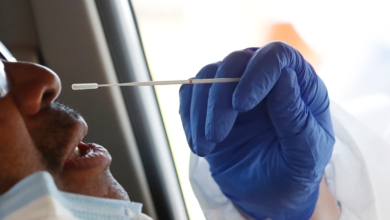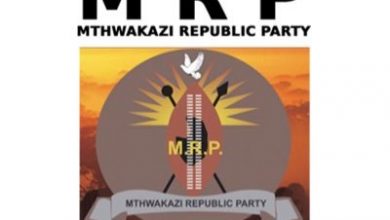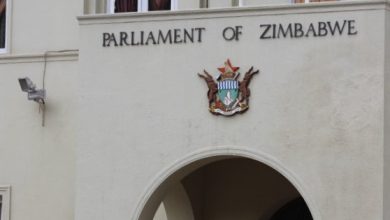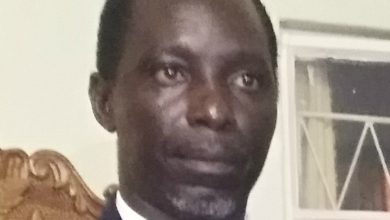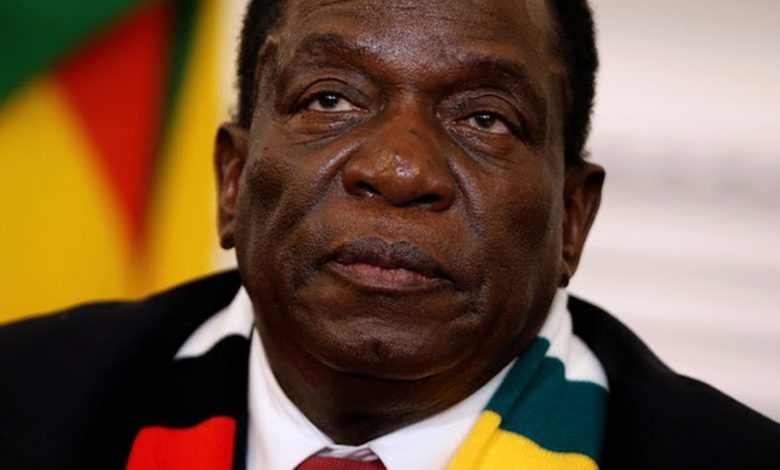
BY SWITHERN CHIROWODZA
In a demonstration of President Emmerson Mnangagwa’s selective application of the law, in particular anti-COVID-19 regulations, security agents disrupted MDC Alliance (MDC-A) 22nd-anniversary celebrations in Bulawayo on September 11, 2021.
The celebrations were held privately at a secluded lodge in Bulawayo’s Burnside suburb.
MDC-A president, Nelson Chamisa was the keynote speaker at the exclusive event, which was attended by less than 100 provincial and national executive members.
Spoiled by state agents who gatecrashed the private ceremony, journalists Tuso Pamenus and Lulu Brenda Harris were detained and forced to delete pictures they had taken. While issuing threats to seize Tuso’s camera, one of the security details boasted saying “I am a military man” to which an MDC Alliance top official replied, “but these are just civilians”.
The threats on the journalists took place while police were pressuring MDC-A members to tell Chamisa to end his speech to which he responded by saying “we are operating in a very difficult environment”.
He added that “the fact that we have police coming here to try and cause problems tells you that we have a fundamental problem in this country”.
The bias by law enforcement agents has helped to expose Mnangagwa who apart from being bereft of commitment in responding to COVID-19 is now using fear of the pandemic as a tool for political expediency.
For example, Mnangagwa has maintained a ban on by-elections despite the World Health Organisation (WHO) executive director for health emergencies programme Michael Ryan telling a COVID-19 virtual press conference on October 12, 2020, that “it is possible to hold safe elections if the proper measures are put in place. Elections do many things. They are an essential part of our lives, and they are absolutely central to how many societies live, survive, and thrive.”
https://www.who.int/publications/m/item/covid-19-virtual-press-conference-transcript—12-october-2020
When opposition MDC legislators discussed the WHO recommendations in parliament, true to ZANU PF form, Zimbabwe’s minister of justice, Ziyambi Ziyambi dismissed them saying “let us not worry about what WHO said.”
Ziyambi also disregarded a WHO pledge to advise countries going into elections on how to minimise risks of spreading the pandemic.
LEGISLATION
In September 2020, the Zimbabwe Electoral Commission (ZEC) announced dates for by-elections. Mnangagwa countered ZEC by promulgating Statutory Instrument (SI) 10 of 2021, which cited the spread of COVID-19.
Mnangagwa’s promulgation reinforced the October 2, 2020 enactment of SI 225A of 220 Public Health (COVID-19 Prevention, Containment and Treatment) (Amendment) Regulations, 2020 (No 4) by Vice President Constantino Chiwenga, which saw COVID-19 declared as a “Formidable Epidemic Disease.” The SI states that “… the holding of any by-election to fill a casual vacancy in Parliament or in a local authority is for the duration of the period of the declaration of COVID-19 as a formidable epidemic disease, suspended ….”
It is important to note that the said duration of the ban on by-elections, which so far is indefinite, is determined by the minister who is also a known ZANU PF member. That legal experts say a statutory instrument cannot set aside a constitutional provision exposes the paucity of Mnangagwa and Chiwenga’s argument of using SIs to deny Zimbabweans a right to elect leaders of their choice.
Nqobani Sithole a human rights lawyer based in Zimbabwe’s second city of Bulawayo notes that “… of late one would have seen that there has been selective application of the law”. Sithole succinctly states that “our constitution clearly states that we are all equal before the law and we all deserve to be protected before the law”.
He observes that although “our constitution clearly states that we are all equal before the law and we all deserve to be protected before the law” of grave concern is the fact that “… of late one would have seen that there has been the selective application of the law”.
On the timing of elections, Section 158 (3) of the Constitution of Zimbabwe Amendment (No. 20) states that “polling in by-elections to Parliament and local authorities must take place within ninety days after the vacancies occurred unless the vacancies occur within nine months before a general election is due to be held, in which event the vacancies may remain unfilled until the general election”.
To illustrate the absurdity of SIs, one has to consider that despite Mnangagwa’s ban on by-elections, several African countries have held elections after the outbreak of COVID-19. For example, Malawi held its presidential elections on June 23, 2020 and in elections held on October 18, 2020, incumbent Professor Alpha Conde of Guinea successfully ran for a third presidential term. However, on September 5, 2021, Conde was toppled in a military coup by 41-year old former French legionnaire, Lt. Col Mamady Doumbouya.
In Tanzania, presidential elections were held on October 28, 2020 while Ghana’s parliamentary elections took place on December 7, 2020. Incumbent President Nana Akufo-Addo was re-elected in the first round after securing a majority of the votes. The Seychelles presidential and national assembly elections were held last year between October 22 and 24. Ivory Coast’s October 31, 2020 presidential elections, which were boycotted by the opposition, saw incumbent Alassane Ouattara win.
Burkina Faso held its presidential elections on November 22, 2020. The Central African Republic held national elections on December 27, 2020. On January 14, 2021, Uganda held its widely disputed elections. Opposition leader Robert Kyagulanyi aka Bobi Wine, his wife and a child were illegally detained in the couple’s house by Uganda’s partisan and meddlesome army. Zambia held its presidential, parliamentary, mayoral and council elections on August 12, 2021. United People for National Development leader, Hakainde Hichilema trumped incumbent Edgar Lungu of the Patriotic Front by 2 810 757 to 1 814 201 votes.
The fact that many countries have held elections after the outbreak of the pandemic exposes Mnangagwa’s use of SIs as a pretext to deny Zimbabweans the right to elect leaders of their choice.
SELECTIVE APPLICATION OF THE LAW
Mnangagwa selectively enforces anti-COVID-19 laws. For example, Harare provincial magistrate Mrs. Vongai Guwuririo jailed Simbarashe Chanachimwe, Arnold Kamudyariwa (DJ Fantan) and Tafadzwa Kadzimwe (DJ Levelz) for an effective six months for violating COVID-19 national regulations on January 6, 2021.
However, on Saturday, November 28, 2020 several government ministers and high-ranking ZANU PF officials gathered in Harare for Information Minister Monica Mutsvanga’s birthday bash. The celebration, which was not disturbed by the police, was held during a ban by SI on house parties, weddings, birthdays, social and political gatherings.
Dubbed “the Super spreader,” critics linked the birthday bash to the January 22, 2021 death from COVID-19 of the Minister of Transport, Biggie Joel Matiza. He is buried at the ZANU PF “National” Heroes Acre. Unlike DJ Fantan and his colleagues, no member of ZANU PF has been arrested to date for attending “the Superspreader”.
On June 25, 2021, three MDC-A youths namely Thandiwe Mpofu, Calvin Moyo and Phumzile Moyo were arrested during a voter registration campaign in Bulawayo’s Pumula Township. A week later Nketa Township residents hosted scores of ZANU PF activists doing voter registration. No arrests were made to date.
In another incident, Matabeleland North Provincial Affairs minister, Richard Moyo addressed a crowd of at least 50 ZANU PF supporters who did not practice any social distancing on June 29, 2021. Moyo and his supporters were not arrested.
In a bid to do damage control on the bad press that arose from Moyo’s ZANU PF rally which took place four days after the arrests of Three MDC-A activists in Pumula, ZANU PF National Spokesperson, Simon Khaya Moyo told the press that everyone including ZANU PF should abide by WHO COVID-19 protocols.
“No one is exempted whatsoever. Police are mandated to apprehend those who break the law. We have rightly stated the recent arrest of over 20 Zanu PF supporters in Bulawayo for not respecting such protocols and guidelines. No one is above the law,” Moyo said.
A thorough check at Bulawayo’s West Commonage and Tredgold Magistrates Courts have so far shown no records of ZANU PF supporters being prosecuted over failure to respect COVID-19 “protocols and guidelines”. Also if there were any fines paid by ZANU PF members as a result of the alleged breaches the Zimbabwe Republic Police (ZRP) spokesperson for Bulawayo Metropolitan, Assistant Inspector Abednigo Ncube and the ZRP Public Relations desk would have been able to confirm.
Khaya Moyo was mum about a bigger public rally that was addressed by ZANU PF Politburo member and Bindura North legislator, Kenneth Shupikai Musanhi on Wednesday, January 27, 2021. Over a hundred people turned out to hear Musanhi. Despite outrage by Zimbabweans over the illegal meeting, no arrests were made. On the contrary, 12 MDC Alliance members from Mashonaland West were arrested at their party offices in Chinhoyi at gunpoint by six soldiers and seven police officers for an alleged breach of COVID-19 rules on February 20, 2021. Their crime, it would seem, was to meet to prepare the burial of a fellow comrade. The case is pending in the courts of law.
POLITICS
Another example of political expediency is Mnangagwa’s never implemented intention to declare localised lockdowns in Harare and Bulawayo, respectively Zimbabwe’s first and second cities, ahead of the ill-fated July 31, 2020 “ZANU PF-MUST-GO” public demonstrations. His rationale for enacting localised lockdowns due to a touted spike in locally transmitted COVID-19 cases ironically did not become an issue after July 31, 2020.
In a briefing to the media, after a cabinet meeting, on July 14, 2020, Minister of Information, Publicity and Information Services, Senator Monica Mutsvangwa declared that “to curb the increase in transmissions as well as deaths from COVID-19, the cabinet resolved to tighten the current lockdown restrictions, while localised lockdowns will be introduced in hotspots….” https://www.zbcnews.co.zw/govt-to-tighten-current-lock-down-introduce-localised-lock-downs/
After July 31, 2020, the shockingly high daily COVID-19 infection rates, published by the Ministry of Health and Child Care (situation reports), suddenly slowed down. The ministry’s daily publication of maps that showed comparative rates of infection per township was discontinued. Suffice to reason that had the July 31, 2020 “ZANU PF-MUST-GO” peaceful march gone ahead, the government could have deployed the armed forces in a politically motivated crackdown against organisers of the protests in general and MDC-A members in opposition strongholds in particular.
HEALTH DELIVERY
A self-allotted monopoly in the compilation of COVID-19 statistics means that without an independent audit and or tabulation government’s figures remain unverified. Without proper statistics, the government cannot plan.
Dr. Henry Madzorera of Kwekwe a medical doctor with over 20 years of experience believes that the government has been particularly weak in the area of testing and data gathering. After years of failure to deliver test kits to several provinces, it seems the government is not willing to put any money into the purchase of test kits.
Despite the fact that other countries are taking care of the interests of their citizens, the government seems to be looking up to other countries and or donors to intervene, give us test kits, renovate our hospitals and pay our health workers. Added to that the health ministry’s circulars which claim that “… thousands of people have tested for Coronavirus,” when few people in our communities are getting tested raises suspicion. The few places that the government has designated as COVID-19 centres are inadequate and ill-equipped. This is a shame because it has left the health of the nation at risk.
This is an important issue because some hospitals are demanding COVID-19 test results before allowing patients entry into hospital premises. It doesn’t matter what the patient’s problem is, whether he or she has been bitten by a snake or a dog or whether the patient is suffering from diarrhoea, health authorities are demanding COVID-19 test results upfront.
And that’s a shame! That is the job that the government hospitals should be doing. When patients get to the hospital they should be a team that tests them, a team that is properly dressed and equipped with the correct Personal Protective Equipment to deal with any potential infection that comes into the hospital. But that has not happened. Some are dying of diabetes at hospital gates because they are not being allowed in.
Dr Henry Madzorera gives a real life testimony of 60-year-old Mrs Chipo Zibango (NB: dates, age and name of patient have been altered to protect their true identity) who collapsed in church on September 20, 2020. Zibango was rushed to Kwekwe General Hospital. She was in diabetic hypoglycemic coma. Said Dr. Madzorera:
“The staff at the hospital refused to take her in, and demanded a negative COVID-19 test result, which could not possibly be obtained on Sunday in time to save the patient. After an hour of fruitless begging, they decided to go to a private hospital, which also refused to take them in. Another struggle! At a private doctor’s practice, however, they were more reasonable because they demanded that the patient be seen by a doctor before they could admit, even in the absence of the COVID-19 result. The rest is history. A patient who could have died in that hour woke up immediately on simple administration of intravenous glucose.”
What is sad is that not all cases have a happy ending. How many patients are dying of easily curable conditions because of the government’s unequalled dereliction of duty in guaranteeing the people’s constitutional right to healthcare?
WAY FORWARD
Genuine electoral and political reforms as envisaged and signed by major political parties that were signatories to the Global Political Agreement (GPA) of 2009 are required to move the country forward.
The excerpts of the GPA still point to what needs to be corrected in Zimbabwe’s politics. For example, Article XIII (State Institutions) states that “the state organs and institutions do not belong to any political party and should be impartial in the discharge of their duties”.

